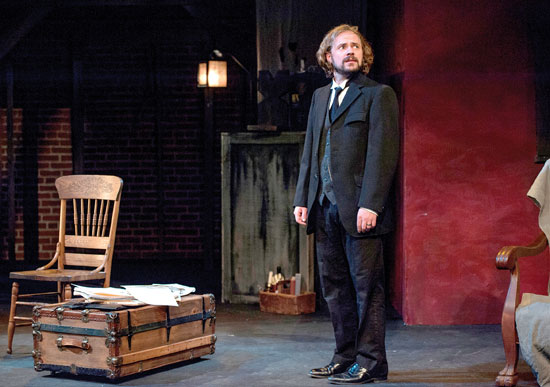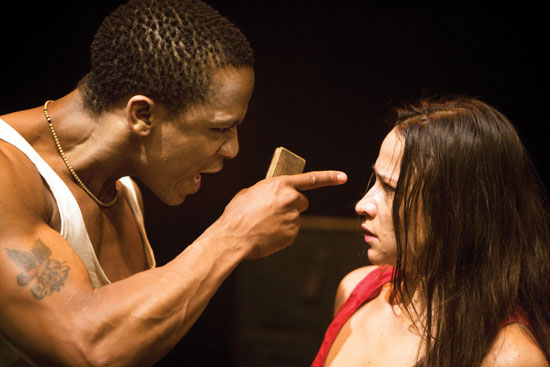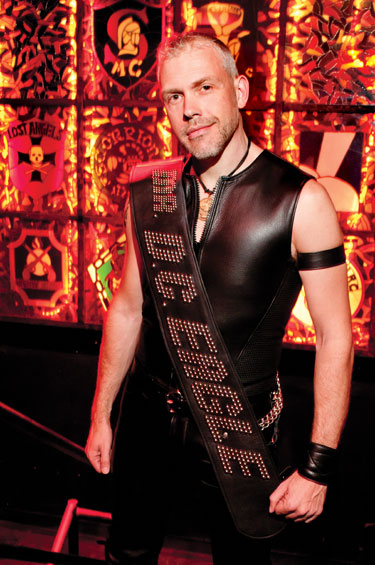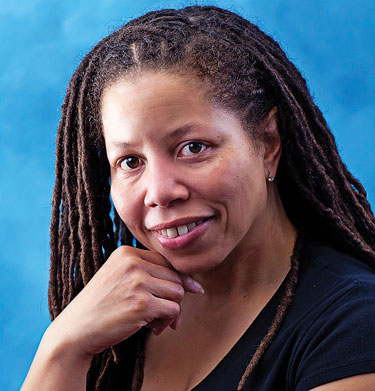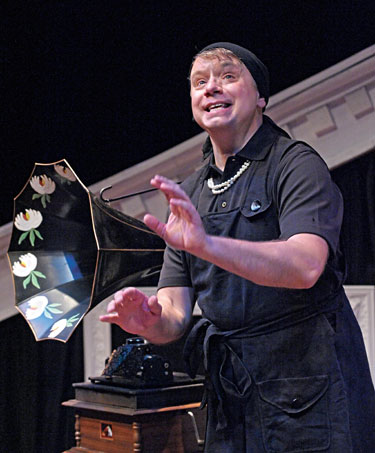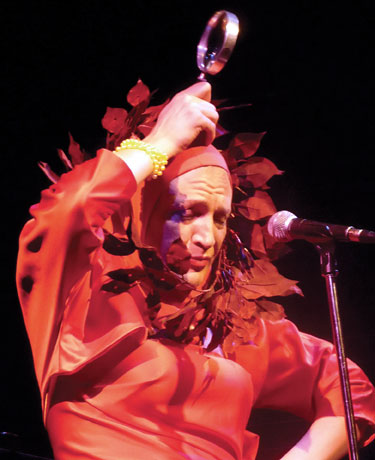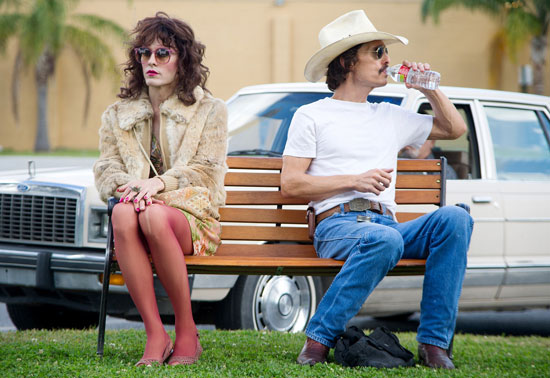Feature Story:
![Metro Weekly's Video Game Issue (Image by Julian Vankim)]()
I love being a gamer. The exhilarating feeling of loading up a new game, the potential new worlds and experiences awaiting me, the joy of wandering through a creation designed to entertain in some varying degree -- gaming ignites more senses than art, music, film or television ever could. Pick up a controller and you're transformed -- save cities from destruction, forge paths through forgotten temples, wage war across continents, race supercars through exotic cities, throw angry avians at hirsute hogs, rescue a princess from a tyrannical turtle -- all are possible through gaming. It's escapism in a way we've never fully realized before, elevating a humdrum existence onto a plane where normal troubles are forgotten in Technicolor glory. Gaming can improve reflexes, stimulate aging brains, teach young ones, bring families together and provide distant friends a means of connecting and sharing in an activity together. Video games, more than ever, are clawing their way out from under the sneering and flippancy of those unwilling to actually play them. They're not just for kids, they're certainly not just a distraction. Gaming is, however, still very much not for gays.
Yes, of course, LGBT people play and enjoy games. Walk into a store or head online, and there are literally thousands of them waiting for your pink dollar. How many, though, specifically cater to that dollar? Very few. Unlike other forms of entertainment -- film, television, music -- gaming has no dedicated LGBT genre. Hollywood caters to those who want a rom-com or drama with two male leads. There are several gay-specific record labels. Gay and lesbian television viewers have multiple programs -- and even dedicated channels -- catering to a gay audience.
Video games, though, have very few such options. Make a list of all the games you've played or know of that feature gay characters, or openly discuss LGBT issues. How many can you name? Compare that with Logo TV, which has created 40 original programs since it started -- and that's just one niche LGBT network. The actual number for LGBT characters is surprising, as they've existed in games since 1986'sMoonmist, a text adventure widely regarded as the first major video game containing a gay character. Gay, lesbian, bisexual and transgender or transvestite characters have played both major and minor roles for three decades of gaming, but, unlike other entertainment forms, have never managed to reach ubiquity. As society has slowly evolved to accept LGBT people, games have followed at an even slower pace.
When included, LGBT characters have often been stereotypes. In 1993's Police Quest: Open Season, a police officer is investigating the murder of his partner and, visiting a gay bar, learns that his partner led a secret life of cross-dressing. Blade Hunter, protagonist of 1990s Rise of the Dragon, hits on a woman who transpires to be a long-haired man, which leads Blade to worry that his nickname will become "Switch Blade." Michael Doi in Bust a Groove 2 is a flamboyant gay dance instructor -- and that's the extent of his characterization.
Censorship based on sexuality was rife, too. Japanese games have long been more liberal in their inclusion of LGBT characters, but many of them had any sexual themes removed for Western distribution. Birdo, perhaps the most famous transsexual in videogames, was openly referred to as a transgender female in Super Mario Bros. 2, but any such reference was removed by Nintendo for Western release. Indeed, Nintendo and Sega, its biggest rival, spent most of the '80s and '90s removing gay themes from games. Dragon Warrior III had a gay bar removed for NES release, while the Western release of Phantasy Star II for the Sega Genesis edited the sexuality of a music teacher down to the point that it was only hinted at when he charged male clients less for music lessons. Hardly a vocal endorsement of gay characters.
Throughout the '90s and into the 21st century, LGBT representation has been a continual mixed bag. Rockstar'sGrand Theft Auto: Vice City featured construction workers dressed like their representative in the Village People, who shouted quotes from "YMCA" and "In The Navy." They followed this with Grand Theft Auto: San Andreas, whose police force made statements such as "Drop the soap, Honey" and "I'm on your ass, Daisy," while a pink dildo that can be used as a weapon is only found in-game in the police station shower room. There are no female police officers, so we can only assume that shower-time in San Andreas is very steamy.
Rockstar then contradicted itself in the sequel, Grand Theft Auto IV. One character, French Tom, is an effeminate gay man who Nico, the player's character, must kill as part of a mission. His sexuality has nothing to do with his murder -- he owes money to another character -- but it's an offensively stereotypical portrayal of gay men in a hyper-masculine world. However, he isn't the only gay character. A later mission involves finding and killing a man named Florian. He transpires to be an old friend of Nico's, having served in the military with him, who has come to Liberty City -- GTA IV's New York City parody -- to restart his life as an out gay man. He convinces Nico that he should be looking for another person, and the two rekindle their friendship. Florian is even more effeminate than Tom, yet Nico not only befriends him, but protects him from murder in later missions. Rockstar doesn't present anything more than a gay stereotype to players, but it does so in two very different ways.
When developers do include LGBT characters, the reaction can often be inflammatory from gaming's male, heterosexual majority. Troika Games' The Temple of Elemental Evil featured a gay character who could be rescued and married by the protagonist. As it was 2003, it ignited controversy among straight gamers who resented the inclusion of the content -- despite same-sex marriage being optional. In an interview with RPG Vault, lead producer Tom Decker defended the game, saying, "I particularly felt strongly that since we had several heterosexual marriages available in Hommlet, we should include at least one homosexual encounter in the game … and not to make it a stereotyped, over the top situation, but on par with the other relationships available in the game."
The negative reaction of gamers clashes with 2004's Fable, which took an entirely laissez-faire approach to homosexual and bisexual relationships. Though its protagonist was male, it was entirely possible to romance and marry either male or female characters. Homosexuality and bisexuality are normal within the game, and should a player choose to romance both genders or just one, their sexuality was reflected in an in-game status. Creative director Dene Carter, speaking with Gamasutra, said that the inclusion of such relationships wasn't intended to be a statement. "It was not so much a question of overt inclusion as a reluctance to remove something that occurred naturally in the course of creating our villagers' artificial intelligence." Most surprising was the lack of controversy around the game's gay content, though Carter wasn't as shocked. "This seems entirely logical; in Fable, if you don't agree with playing as a gay man, or gay weddings … you don't play as a gay character. Simple, really." It was a refreshingly honest approach that is still something of an anomaly in today's video games.
That's not to say that we haven't had at least a few developers waving the rainbow flag. Ask any gay gamer what their first experience of gay or bisexual character in gaming was, and I'd be surprised if a sizable portion don't answer with The Sims. The life simulator from Maxis is an incredible game, filled with minute details and controls over your in-game character, their life, and their family should you choose to have one. In 2000, the original Sims title hit retailers, and gay and lesbian relationships were possible. Characters could move in with one another, whether same-sex or heterosexual, and adopt and raise children. Expansion game Livin' Largeintroduced the Vibromatic Heart Bed, which allowed one Sim to lie in bed and invite another to join them. It didn't show anything graphic -- merely rustling under the covers -- but it was an important step in interacting with a same-sex relationship. The Sims 2 followed in 2004, with the possibility for same-sex couples to form joined unions, distinct from heterosexual characters who could enjoy in-game marriage. In 2009, The Sims 3pre-empted most American states and granted marriage equality to same-sex couples, and if expansion packGenerationswas purchased, same-sex teens could go to the prom together. Sure, it's just a game, but for a closeted youth, being able to control an idyllic gay life free from discrimination could be an escape from reality -- especially as they come to terms with being gay, lesbian or bisexual.
Bioware, arguably, has the greatest record of any major game developer in their approach to gay or lesbian characters. In 2005, Jade Empire gave players the choice between a male or female protagonist, with both able to romance either men or women. Mass Effect, in its 2007 release, quite famously included Liara T'Soni, an un-gendered alien who appears feminine and who can be romanced by the protagonist regardless of whether the player chooses to be male or female -- the end result being a very quick, tasteful cutscene in which it is made clear that the characters are having sex. That relationship, as well as the two other heterosexual romance options available, were lambasted by neoconservative blogger Kevin McCullough, who ranted that "Mass Effectcan be customized to sodomize whatever, whomever, however, the game player wishes," even claiming that rape was possible. It was not, and the extent of Mass Effect's raciness was two glimpses of Liara's buttocks -- hardly enough to warrant the attack. Two sequels followed, with the first allowing for a female protagonist and a female character to romance, and the latter sequel allowing for both male and female protagonists to romance either sex.
Bioware's 2009 release Dragon Age: Origins went further still. Again, either a female or male protagonist could be selected, and both could romance either men or women. But both have the possibility for casual encounters as well as full relationships -- with cutscenes briefly showing sex, regardless of orientation. Similarly, both male and female prostitutes could be engaged in Dragon Age II. A small, yet vocal minority of gamers claimed that straight males were being marginalized by the inclusion of same-sex relationships, but Bioware's David Gaider refuted such claims on the company's website, stating, "The romances in the game are not for 'the straight male gamer.' They're for everyone. We have a lot of fans, many of whom are neither straight nor male, and they deserve no less attention." He concluded with, "And the person who says that the only way to please themis to restrict options for others is, if you ask me, the one who deserves it least. And that's my opinion, expressed as politely as possible."
Bioware, Maxis and other developers who include positive gay role models are still very much in the minority. For every major release that includes a same-sex relationship or a transgender character (see Japan for the latter, as it's virtually non-existent in Western gaming), there are hundreds of others depicting gay stereotypes or simply ignoring LGBT characters altogether. For someone struggling with their sexuality or their gender, there's very little that gaming can currently offer to make them feel "normal" or accepted.
LGBT gaming has a meek past, but what about its future? Within one week gaming will have entered a new generation of home consoles. Sony releases its PlayStation 4 Nov. 15 for $399, while Microsoft releases Xbox One a week later for $499. Both are pretty evenly matched, and the decision of purchase comes down to existing preference and the litany of exclusive games that both consoles have. What both also represent, however, is a relative time-shift in gaming terms. We measure gaming, whether on a console or on a PC, in terms of the generation of home consoles that we are on. The PS4 and Xbox One represent the eighth generation, and with that generation comes fresh hope and optimism for gaming. What incredible new graphics will we see with the power of the consoles? Where will game developers take us as they let their creativity run wild? Will we finally see a major game with an LGBT lead character?
That latter question, especially in light of the incredible social advances that have happened in recent years, is one that will increasingly be asked of developers, publishers, console manufacturers and gamers themselves alike. Will the eighth generation of home consoles be the one that allows an LGBT teen to sit down at their PS4 or Xbox One, turn on their console and immerse in a world where they can fully express themselves, rather than fitting into a pre-determined role that is more than likely that of a heterosexual male.
The better question for now is whether a game like that would even make it to console. While gaming has no major -- or even minor -- queer-focused development crowd, if you want to play a specifically gay-oriented game, you really only have one option: PC. The open, free access to gaming development on PC means that, regardless of scope or budget, it's possible for a gay developer to craft something, get it online and have it be played by its target audience.
Trans gaming, in particular, is largely without any real representation. But transgender game-developer Anna Anthropy has made herself something of an indie-darling for just that: creating games that deal with trans and queer issues. Mighty Jill Off is a game that features a lesbian protagonist with a boot fetish, and explores BDSM in its gameplay and difficulty -- albeit in the guise of a simple platformer.Lesbian Spider Queens of Mars is deceptively simple, with its maze-orientated gameplay, but it's also sexy, tongue-in-cheek, features a lesbian protagonist and manages to be both challenging and rewarding, as well as a nice throwback to '80s arcade games. Anthropy's magnum opus, at least in my eyes, is Dsy4ia. Created as a simple browser game, it was developed by Anthropy to recount her experiences of gender-identity disorder and hormone-replacement therapy. It's an incredibly simple game. In fact, its basic interaction is the only real "gaming" part of it -- but it's also incredibly effective. Managing to be both thought-provoking and amusing, it follows six months in Anthropy's life as she struggles with her identity, her hormones and her relationship. Anthropy explained her reason for discussing the topic in a game, rather than a blog post or novel, with Penny Arcade Report: "This was a story about frustration -- in what other form do people complain as much about being frustrated? A video game lets you set up goals for the player and make her fail to achieve them. A reader can't fail a book. It's an entirely different level of empathy." Dys4ia, with its simple graphics and even simpler gameplay, won't revolutionize gaming, but it and Anthropy's other games are important lifelines to those who are otherwise ignored and marginalized by society and by mainstream gaming.
The same can be said of Up Multimedia's My Ex-Boyfriend the Space Tyrant, created by Luke Miller. It is, in many ways, a unique game. Catering to a gay male audience, it features a gay protagonist, gay characters and a gay enemy in a storyline that is unashamedly camp and over-the-top. As a game, it doesn't challenge any of the mainstream hitters, or even many indie titles. Its gameplay is relatively simple. It's got a few bugs and glitches, and it's a short, repetitive experience. These are, however, all symptoms of its small development pool and limited budget. Where it excels is in its story, its witty and referential writing, and its unique, cartoonish art style. It's got puns, innuendos, romance, 8-foot-tall enemies who are symphonies of muscle, a drag queen, gym-fit characters and a middle-aged lesbian couple. It has it all. It's a revelation -- especially after years of games that have a gay character added on or an optional gay-romance story -- to play something that is just straight-up gay.
"Game developers are champing at the bit to tell new stories in new ways," Miller told Metro Weekly via email, "and the discussion about LGBT voices in games is part of that wider debate about what is possible in this largely undeveloped art form." Miller is aware of the failings of developers, both indie and mainstream, to tap into the queer market effectively. "There is general recognition in the industry that we can and must do much better, especially with regards to telling stories that appeal to women, gay gamers and other under-represented groups. The audiences are demanding it but also, importantly, the content makers, who are often LGBT themselves, are no longer willing to remain invisible."
In terms of gay gaming, it's indie developers like Miller who will be leading the charge. The cheap access to development tools makes it easy for developers to craft specific stories and cater to markets that big-budget developers have yet to tap. Toni Rocca is president of GaymerX, an LGBT-focused gaming exhibition that ran for the first time in San Francisco in August. As well as offering a place for LGBT gamers and developers to meet and discuss gaming, it gave attendees a space to feel comfortable away from the often masculine and hetero-focused conventions where gay or trans gamers may feel less-inclined to be open. Rocca agrees that the next stage of LGBT gaming will take place on PC, away from home consoles. "Whether people get their Xbox or PlayStation," he says, "they'll be spending a good chunk of time and money on Steam and freeware games. This is, I believe, especially true of queer gamers. LGBTQ individuals are taking game creation into their own hands. This new wave of queer games is something of a revolution, and we are learning quickly that it doesn't really have the patience to wait for console licensing processes."
It's a sentiment that Miller echoes. "The other big trend I think we will see in the next few years is openly-gay games from the indie scene. Games where the gay content is front and center and the emphasis is on story. Whereas big games will have LGBT content as a discreet aside, there will be a growing library of indie games with queer protagonists and lifestyles for those of us who want an unadulterated gay experience."
Should a queer, indie game prove successful, it could quickly find itself in the mainstream. That's what occurred with Fullbright Company's Gone Home this year. In the game, the protagonist returns home to discover her parents and teenage sister are missing, and the house empty. Over the course of the game, the player explores the home, unlocking snippets of dialogue that slowly unravel the narrative of the sister while discovering items and personal effects that further detail the events that took place. It is, on first impressions, a point-and-click, immensely detailed exploration game. But it's in the narrative that Gone Home provides a stunning revelation. Slowly, teasingly, it reveals -- and I caution spoilers here, so skip the next few sentences if you'd rather play for yourself -- that the younger sister is coming to terms with her sexuality, and that she ultimately is missing as she has ran away with her high school lover. It's a revelation that surprised many, and delighted many more. Gone Home brought LGBT gaming into the limelight, and did so as a small, indie title, and in a way that didn't force gamers into the awkward position of having to play as an LGBT character if they didn't wish to.
Steve Gaynor, the co-founder of Fullbright Company, is a champion of PC development and its ability to allow gaming experiences that can offer such positive inclusions of LGBT themes. "The new consoles aren't the only place to look for interesting new experiences in games," he says. "PC and Mac as well as mobile platforms are all thriving with new releases by independent developers that don't need to target the 18-to-24-year-old straight male demographic to succeed." He is, however, all too aware of the relative lack of a dedicated LGBT-focused portion of the gaming industry. "While my guess would be that a segment of the industry catering specifically to LGBT audiences will remain small, I know that more games in both the indie and mainstream space will continue to gain more freedom to explore more varied and relevant themes than ever before. And hopefully that will give the LGBT audience, and everyone else, more interesting and personal gaming experiences to connect with."
If indie gaming is the future of gay gaming, where does that leave the console gamer? Are we condemning those who don't have a computer to play games on to sit out the next generation as LGBT developers find their footing in the gaming world? It doesn't have to be that way. The Entertainment Software Rating Board, which decides on the ratings that games get upon their release, openly stated that they will not discriminate on the ground of sexuality when it comes to rating a game for console release. Spokesman Eliot Mizrachi told Metro Weekly, "ESRB treats all characters the same regardless of their sexual orientation; whether they are gay or straight has no bearing on our ratings. But if content is sexual it can certainly impact the age rating category, and we will label it as such regardless of the gender of the characters involved." What this means for young gamers, those who aren't yet old enough to play mature games, is that should a developer include a gay character into a normal game, it won't be penalized for that character being gay. And, really, what better way for a struggling gay youth to feel normal than for them to see a gay character alongside their straight friends in a game?
Electronic Arts has already thrown its hat into the LGBT-friendly ring, and other publishers seem willing, too. Sony Online Entertainment, whose parent company makes the PlayStation, and Valve, which operates one of the largest online PC game stores and also make games, both sponsored Sydney Gaymers, a group of LGBT-inclusive gamers based in Australia, when they decided to march in the Sydney Mardi Gras Parade. Sony is bringing a renewed focus on indie gaming to the PS4, which may in the future see LGBT games such as Gone Home coming to the platform should there be enough support for them -- though this is, of course, just speculation. A Microsoft spokesperson, when asked by Metro Weekly whether they would support greater focus on LGBT gaming, responded, "The Xbox community is larger and more diverse than ever before. With the launch of Xbox One, we are excited to welcome everyone into a new generation of games and entertainment."
Ultimately, as we move into the next generation, LGBT gamers shouldn't feel forced to play just indie, PC titles in order to feel included. The fantastic work of indie developers can't be ignored -- they are opening important doors for LGBT people -- but is it too much to ask that a big-budget studio, in this day and age, take a risk and throw a likeable, playable LGBT character into a game? Controversy breeds normality -- there will, of course, be an initial backlash from the vocal minority who can't stand to see inclusion. When My Ex-Boyfriend The Space Tyrant was submitted to Valve's Steam game store, comments ranged from, "If this was lesbians it would be awesome, but it's not. Get this shit off steam please," to simply "fag shit." Such vitriol will hopefully soon be relegated to the history books.
Gaming really is an all-encompassing experience. Pick up a controller, grab a mouse, or even tap on a mobile screen, and you're taken from reality. For an LGBT gamer, particularly one who is still struggling to admit that they are gay, or bisexual, or that they are having gender-identity issues, having a way to remove yourself from the worry and complexity of normal life is an intoxicating elixir. What our responsibility, and our goal, for the future should be is to make sure that when an LGBT person picks up a controller they're not picking up another gateway to prejudice and exclusion. I want to be able to go into a multiplayer game and not hear people throw about "Homo!" as if it meant nothing. I want to play a game and have at least the option to enjoy a same-sex romance storyline. I want to have a trans character in a game who isn't referenced as being trans because every other character is confused by them. I want to see Mario leave Princess Peach in her castle and go to a gay bar. That last one may just be me, though.
Contributing editor Rhuaridh Marr covers video games, technology and cars daily at MetroWeekly.com.
![]()
...
more
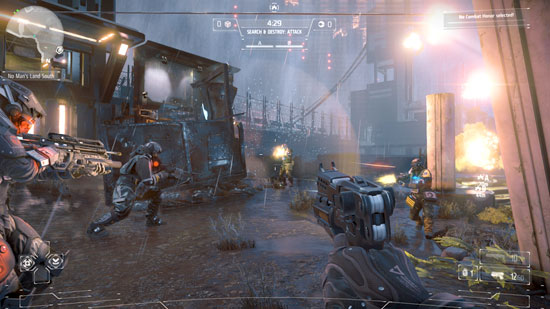


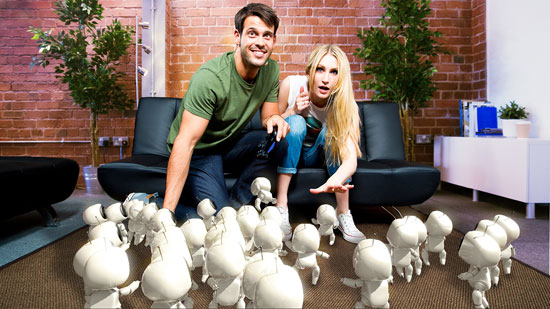

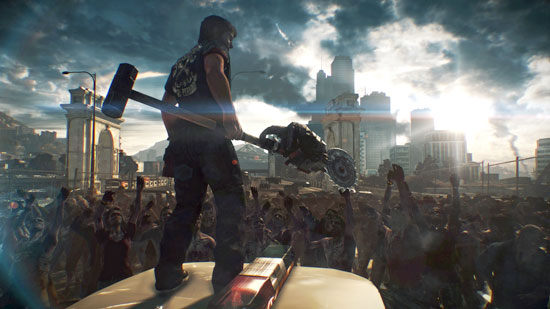
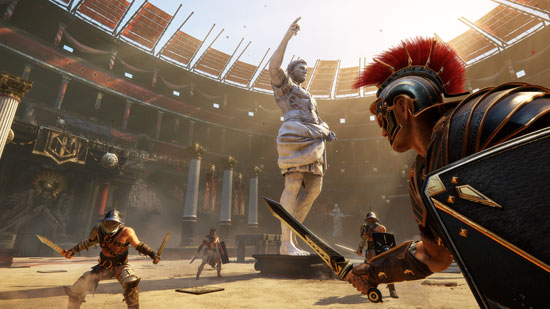

 ...
...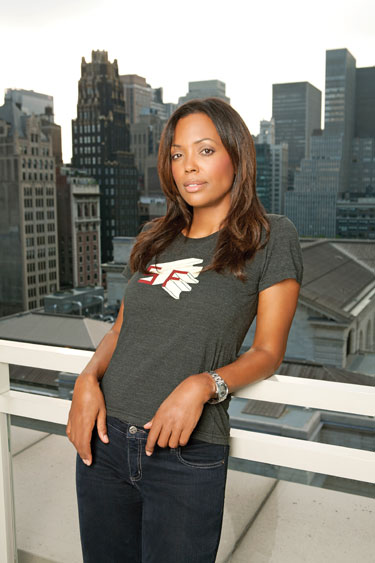
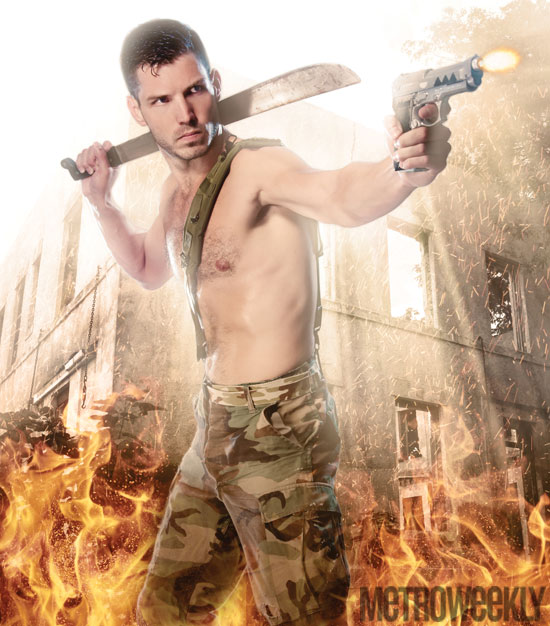
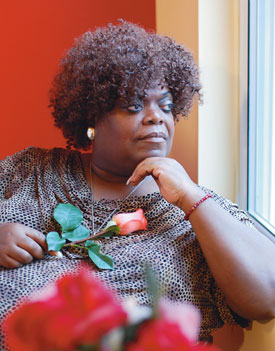 Earline Budd (File Photo/Todd Franson)
Earline Budd (File Photo/Todd Franson)
